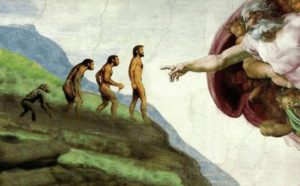While I really enjoyed this book, I think I’m part of a certain demographic that would inherently be inclined to like this book. I like science, I love evolution, I’m not particularly religious, I’ve received great education, and I like reading science-based or non-fiction books the best. I’m fully aware that not everyone shares those opinions though, which is where I get into the green bean metaphor.
The way I see it is this: people like me are the people who like vegetables. We’ll eat carrots, broccoli, asparagus, and definitely green beans, and green beans in particular are a very popular, well-liked veggie that doesn’t challenge you too much. But there are people who don’t like vegetables at all. For whatever reason, it’s not their scene. Maybe they taste bad, they prefer fruit, etc. However, on occasion, you can probably get someone to have some green beans that have been cooked up real nice, or introduce someone to veggies with a plate of green beans. They may not always turn to them, but green beans a good option if they’re in the mood for some greens.

Zoobiquity is green beans. For people who like science, it’s a light and interesting read that exposes you to some new information but doesn’t make you work too hard to get it. For people who maybe prefer works of fiction or don’t like science all that much, I think Zoobiquity is the kind of book that they could end up liking should they decide to pick up a *nerdier* book or want to dip their toe in the water.
However, I don’t think this book would ever go over well with someone extremely religious as it challenges a lot of the concepts held by some people in those groups. At least in any religion that’s a fan of the New Testament, members may struggle to accept a book that claims they’re not entirely separated from the rest of God’s creation, much as people oppose to the concept of evolution.
